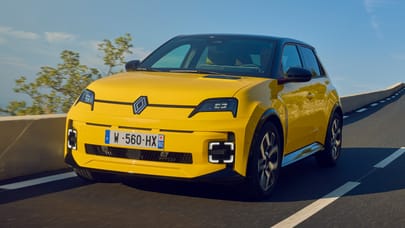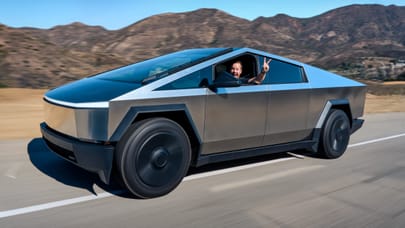
Audi e-tron Sportback – long-term review
£79,185 / £89,470 as tested / £1,020 PCM
SPEC HIGHLIGHTS
- SPEC
e-tron Sportback 55 quattro S-line
- Range
260 miles
- ENGINE
1cc
- BHP
408bhp
- 0-62
6.6s
Audi e-tron Sportback: why inefficiency matters more than range
One of the strangest phenomena surrounding the rise of electrification is the lack of discussion around different vehicles' relative efficiencies. Ask most people what a miles-per-gallon figure is and they would be able to articulate it, but ask them how an EV’s energy consumption is measured and most of us would still be left scratching our head.
As with any new technology the consumer is having to learn a whole new lexicon and get to grips with kWh, miles per kWh, charge rates and battery optimisation parameters. In short, we are all still learning.
Add to this new language the fact that charging silently overnight as you sleep with a bill that lands quarterly is a far more remote and disconnected process than standing at a pump and feeling 60-80 litres of fluid flow into the vehicle shortly before heading in to pay for it, no wonder it isn’t front of mind.
Currently (sorry) it feels that the blanket perception for EVs is they’re all very efficient and those early adopters should be celebrated for their forward thinking... But people I have news: not all EVs are created equal, and some are far more efficient than others.
Take the e-tron Sportback 55 Quattro. With its massive 95kWh battery it has performance to spare, and a claimed range of 241 miles. In the real world and despite driving it in the saintly Efficiency mode we’re struggling to get over 175 miles on a full charge at an average consumption across its life of 2.1 miles per kWh. For comparison our Honda e is delivering 3.2 miles per kWh, and has a range in the real world of 100 miles. Just like a Honda Jazz is more efficient than an Audi RSQ8, you can't outrun the physics of drag and mass.
While there’s nothing wrong with the e-tron’s performance, its consumption in the real world goes further to articulate how far ahead Tesla is in this market. In a recent test our team returned 4.3miles per kWh in a humble Model 3 and their quest to continue to improve shows no signs of slowing down any time soon. Clearly Audi along with the rest of the industry has a lot of catching up to do.
The other issue I have is one of scale, the e-tron is vast, its proportions ballooned to contain a battery that tries to deliver enough mileage to mitigate range anxiety and lure people from their long-range ICE safe place. But in reality when the efficiency delivers under 200 miles of range you’re hardly likely to be considering the e-tron for your next cross continental drive.
Surely we have to turn this problem on its head… rather than engineering a generation of cars that weigh over 2.5 tonnes, for the most part carry one passenger no further than a 20-mile round trip, we should be creating a ubiquitous infrastructure that supports rapid charging of smaller, more energy and materials efficient lightweight vehicles that truly deliver a vision of the future, rather than the current crop of heavy, inefficient first generation solutions that I fear the e-tron and other like it represent.








